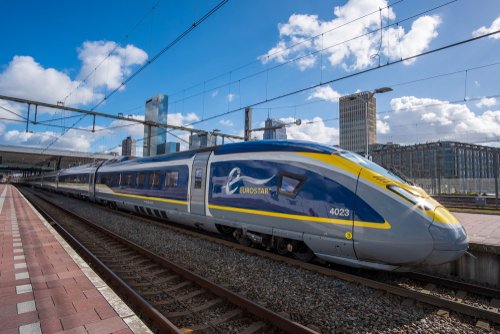Belgium (Brussels Morning Newspaper) The first service European Sleeper is scheduled to depart on 25 May. The launch comes amid fresh enthusiasm for long-distance trains across Europe, as the traveling public look for more sustainable alternatives to aviation.
The service, which runs via Amsterdam, leaves Brussels three evenings a week and arrives 12 hours later in the German capital. It has a choice of seats and couchettes and both bikes and pets can be transported. Prices start from as little as €49.
It is one of several new rail services being supported by the European Commission.
Earlier this year, the EU announced it will support 10 pilot projects to establish new rail services or improve existing ones. Together, they aim to improve cross-border rail connections across the EU, making them faster, more frequent, and more affordable.
Among the proposals selected are is night train start-up European Sleeper, which runs the Brussels to Berlin route, the Hungarian Ministry of Transport, Midnight Trains, Flixtrain, and SJ, though no financial EU support is part of it.
European Sleeper is a new Belgian-Dutch railway company, that started in 2021.
A spokesman said, “We are not the only night train fans. Anyone who has ever traveled by night train will tell you enthusiastically about the adventure on board. It’s a great way to travel because stress doesn’t exist when you get closer to your destination while you sleep. Plus, it’s better for the Earth than many other forms of travel.”
It was founded by Elmer van Buuren and Chris Engelsman, two entrepreneurs who say they have a “great passion” for sleeper trains.
The spokesman said, “With European Sleeper, we make connections between countries and cities, connections between people and companies. We will start with a train that runs from Brussels via Amsterdam to Berlin. And every year a new train connection will be added. More and more people will leave the plane, car, or bus behind and discover more destinations by night.”
European Sleeper is organized as a cooperative. In May 2021 and within 15 minutes, it raised €500,000 in seed capital, by selling shares to more than 350 small investors from various countries in Europe and beyond.
It also plans to start an Amsterdam to Barcelona service by 2025.
European Commissioner for Transport Adina Vălean said: “While demand for green mobility is growing, we need the rail market to respond much better and much faster, especially for long and cross-border journeys.
“This is why the European Commission now wants to help rail companies create new international train connections – by day and by night – by breaking down the many barriers to cross-border rail. I’m looking forward to working with the rail sector to make these 10 pilots a success and to inspire many more to join.”
In addition to European Sleeper, the Commission has also selected the following proposals for cross-border pilot services:
- Hungarian Ministry of Transport, new services connecting Hungary, Austria, and western Romania;
- Connection Germany – Denmark – Sweden, with the participation of SJ (new night train service Stockholm – Copenhagen – Berlin and day train Hamburg – Gothenburg (and potentially Oslo, in co-operation with DSB and DB), Snälltaget (enhanced night train service Stockholm – Copenhagen – Berlin), České dráhy (new service Prague – Berlin –Copenhagen, in co-operation with DB and DSB) and Flixtrain (new service Leipzig – Berlin – Copenhagen– Stockholm)
- Midnight Trains, new night train service Paris – Milan – Venice;
- Flixtrain, new service Munich – Zurich;
- WESTbahn, new service Munich – Vienna – Budapest, an extension of existing service;
- Nederlandse Spoorwegen, enhancement of the existing Amsterdam – London service, in cooperation with Eurostar;
- Ferrovie dello Stato Italiane /Deutsche Bahn, new services Rome – Munich and Milan – Munich, with a possible extension to Berlin;
- ILSA, new services Lisbon – A Coruña and Lisbon – Madrid;
- Ferrocarrils de la Generalitat de Catalunya, new services connecting Catalonia and the South of France.




